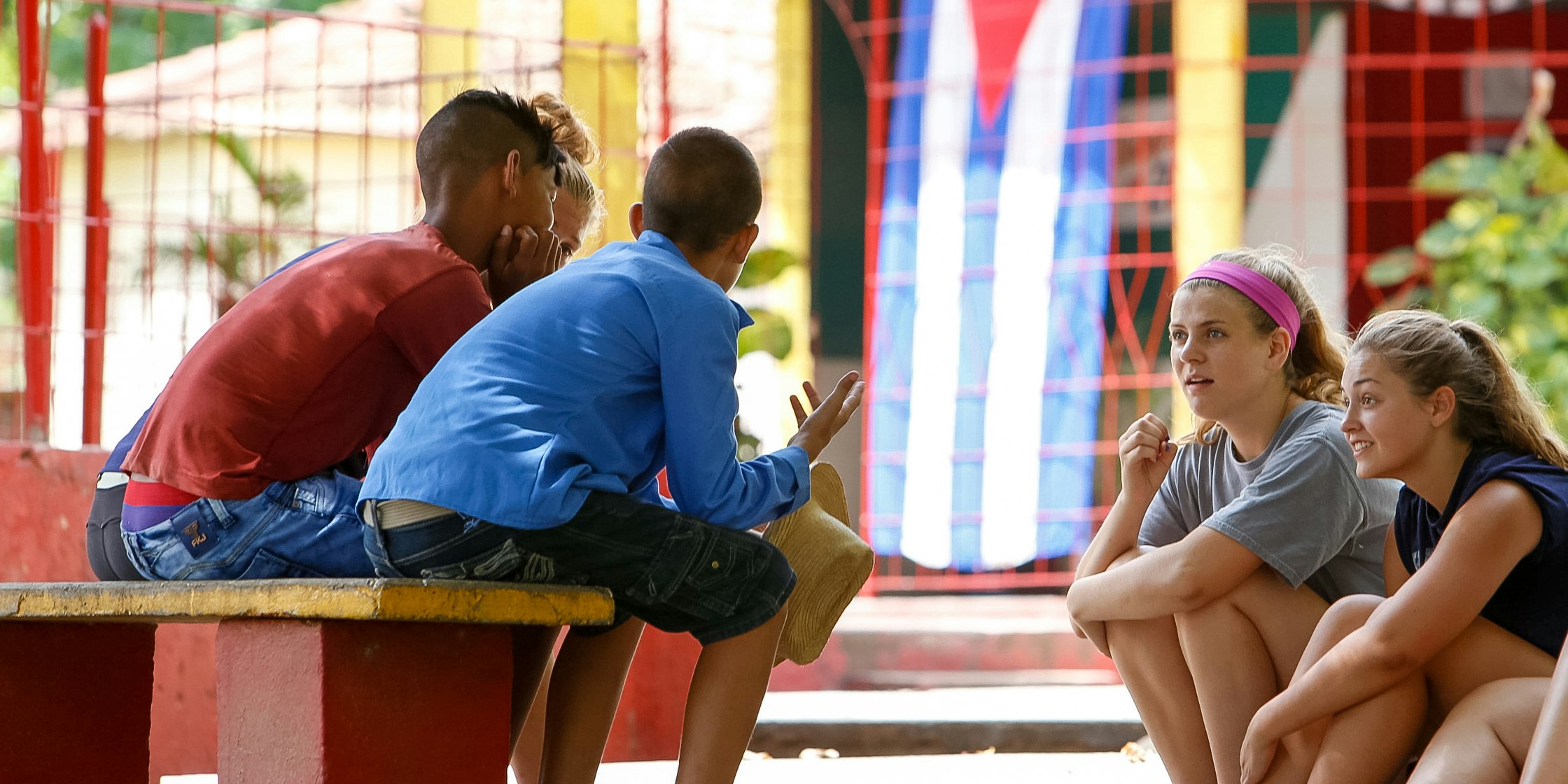- Author:
- Emily Greiff
- Published:
- November 23, 2017
- Favorites:
- Tagged In:
- Gap Year School Group Travel Student Travel About Rustic
There are so many reasons to get teens traveling early (and without their parents), but exposing them to new cultures is one of the most important. Because this often happens for the first time during high school travel programs, teens should be taught to respectfully observe and react to what they’re experiencing.
Consider this potential scenario: A group heads out to explore an open market and stops at a vendor selling an unfamiliar food. Many of them haven’t been to an open market, or have any idea what the vendor is cooking over an open fire. Perhaps it’s something they normally wouldn’t consider eating back home.
The vendor offers the group a sample and the teens are faced with a decision:
- Deny the unfamiliar food because it’s “gross” or “strange”
- Ask questions to learn more about it and how it’s prepared before trying it
- Accept the vendor’s offer without hesitation

According to research, people often experience and engage cultural difference in a continuum of increasing sensitivity—from denial to integration. During a Rustic Pathways program, your teen is encouraged to practice acceptance toward a new culture and encouraged to ask questions. Take food for example. They could ask why certain foods are eaten, what they’re made from, how they’re prepared to decide whether they want to try it.
We ask them to avoid making negative declarations that could be associated with an unfamiliar cultural norm, by saying “ew” or “yuck.”

There’s a big difference between a teen not understanding and assigning a negative value to something they’re unfamiliar with. The less they try to define another culture’s practices within the constructs of their own belief systems, the more open-minded they’ll become by trying new things and experiencing different cultures.
Rustic’s high school travel programs allow teens to practice cultural sensitivity. They’ll be exposed to new places, unique cultural traditions, different clothing styles, and unfamiliar foods, among other things. Asking teens to be culturally sensitive doesn’t mean they’ll be expected to become experts in each culture’s values. Instead, they’ll be encouraged to ask questions, seek to understand, and to demonstrate empathy rather than judging those around them.

It’s our hope that your teen walks away from their Rustic experience with some key skills that will help them navigate an increasingly global world. We refer to these non-cognitive skills as our Student Learning Outcomes. Of the 10 learning outcomes that we’ve identified, three of them—openness to new ideas and experiences, empathy, and intercultural competence—relate back to this idea of cultural sensitivity and creating a world in which all people withhold judgments of the unfamiliar, and instead, work to understand each other’s differences.
We believe that with understanding comes greater acceptance. The more we embrace our differences, the more we knock down intercultural barriers that create conflict in our world.
Want to expose your teen to another culture? Give the gift of travel this year. To learn more, request a call from one of our global travel experts.
Emily Greiff
Website Coordinator
Originally from a small town in Massachusetts, Emily realized her dreams of living in the mountains when she moved to Jackson Hole, Wyoming in the fall of 2014. Prior to that, Emily lived and worked in NYC after graduating from Colgate University with a dual degree in Spanish and Environmental Studies. This is Emily’s first experience working with Rustic Pathways but has done a number of service and travel programs in the past including trips to the Dominican Republic, Spain, and Romania. Emily is passionate about playing in the mountains, yoga, cooking, and art.
